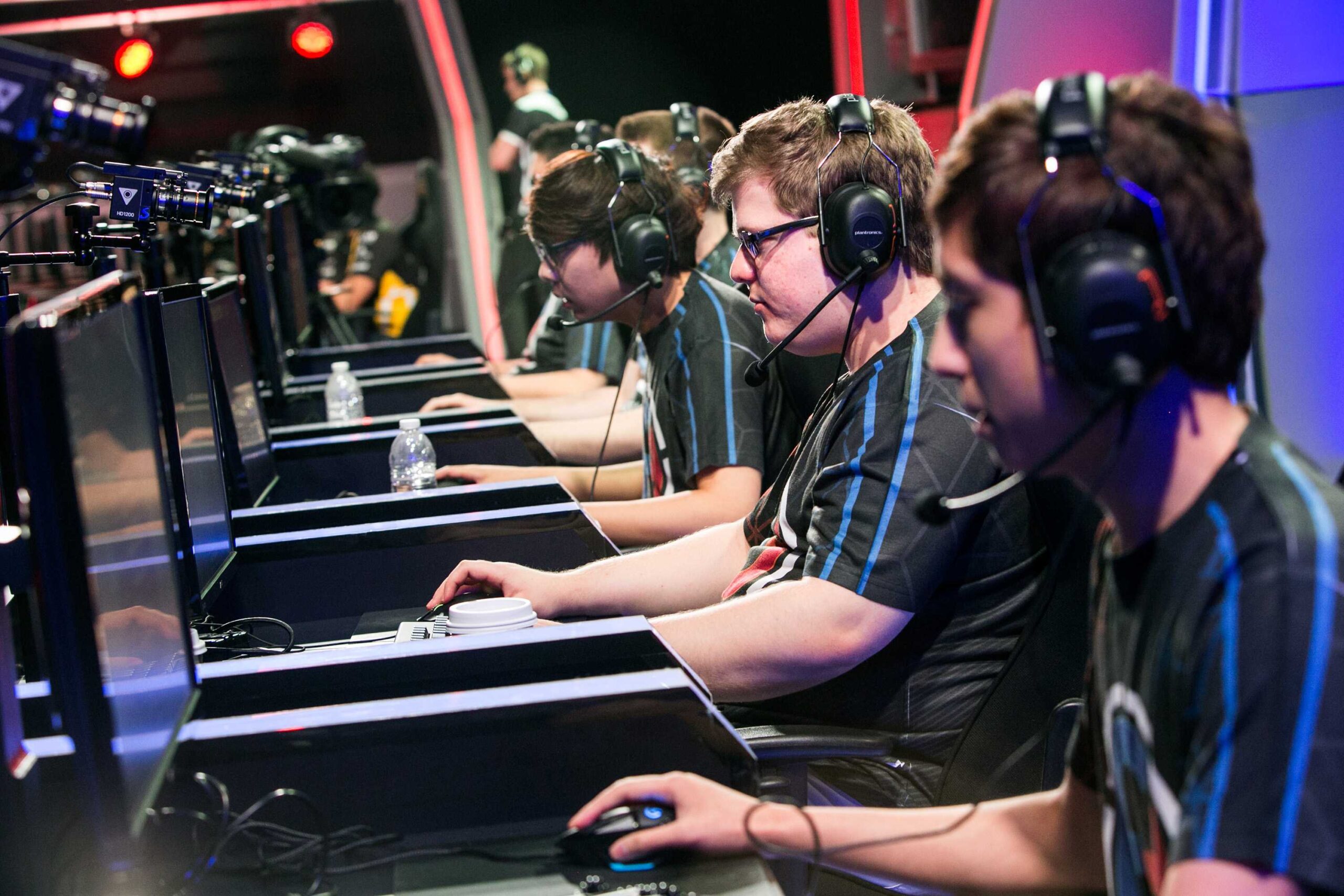Esports: how games became a profession
By Alex@PC╺
- PS4
- PS5
- XBox One
- Series X
- PC
Introduction: From entertainment to professional activity
Esports is a phenomenon that has undergone rapid development over the past decade, transforming from a simple hobby into a full-fledged career.
Until recently, video games were seen exclusively as a form of leisure, but today they have become a serious business involving millions of players and fans around the world. In Poland, this trend is gaining popularity, attracting the attention of not only players, but also sponsors, investors and the media.

Along with the development of esports, interest in various forms of online entertainment, such as Lemon Casino review, is also growing, complementing the digital gaming industry and offering additional opportunities for gambling entertainment.
The esports market is expanding thanks to constant technological progress and growing interest in online competitions. The unique features of esports lie in the fact that it combines elements of sport, strategy, teamwork and innovative technologies. All this creates a unique environment where talent, perseverance and teamwork skills shape successful professionals.
Today, esports is no longer just about gaming, but also about opportunities, career development, global competitions and an industry worth billions. Famous teams, numerous tournaments, streams and training sessions have all become part of everyday life for modern gamers who strive to reach the top in this field.
The history of esports in the world and in Poland
Esports dates back to the 1990s, when the internet and computer games began to rapidly gain popularity. The first competitions were held at the local level and had a very limited audience. However, in the early 2000s, esports began to become a mass phenomenon thanks to competitions in games such as StarCraft, Counter-Strike and Dota.
In Poland, interest in electronic sports also grew gradually. The first local tournaments were held in student clubs and at computer game festivals. However, with the development of technology and the availability of high-speed internet, esports became a real industry that attracts investment and support from government organisations.
By the 2010s, the first professional teams capable of competing at the international level had formed in the country. Since then, Poland has become one of the most important centres of e-sports in Europe, organising world-class tournaments and developing infrastructure for professionals.
Subheadings: Main stages of development
- The emergence of the first local tournaments in the 1990s
- The rise in popularity of StarCraft and Counter-Strike in the 2000s
- The creation of the first professional teams in Poland
- The organisation of international competitions in the country
- Active support for esports from businesses and the state
How esports became a profession: key aspects
Esports has gone beyond amateur competitions and now offers players official contracts, a stable income and even social status. Becoming a professional gamer means not only being able to skilfully control a character or team, but also possessing many other skills.
Key components of a professional career in esports include regular training, participation in tournaments, support from sponsors, and teamwork. Professional players spend hours practising tactics and communicating with their teammates, and their schedule is no less demanding than that of athletes in traditional sports.
In addition, esports athletes participate in content creation, communicate with their fans on streams, and collaborate with the media to promote the industry. All of this forms a whole range of activities that allow you to turn your passion for video games into a profession with all its attributes.
The main professional games in esports
Esports encompasses many genres of games, each with its own community and competition system. The most popular disciplines for building a career are:
- MOBA (Multiplayer Online Battle Arena): examples include Dota 2 and League of Legends, which attract millions of viewers to tournaments.
- FPS (First-Person Shooter): Counter-Strike: Global Offensive and Valorant, where reaction, accuracy and team tactics are important.
- Battle Royale: Fortnite and Apex Legends, which are popular among young people thanks to their dynamic gameplay.
- Real-time strategy: StarCraft II remains a classic of the genre, requiring deep tactical thinking.
Each genre requires unique skills and training. For example, MOBA games emphasise teamwork and long-term strategies, while shooters require split-second reactions and precise aiming.
How to start a career as an esports player in Poland?
The first step towards a professional career in esports is to systematically improve your skills and participate in local tournaments.
Starting at the amateur level, players can train with more experienced teams or join esports academies that are popping up in major cities across the country.

Important tips for beginners:
- Choose a specific genre and game that you want to develop in.
- Constantly work on improving your technical skills and knowledge of game mechanics.
- Attend tournaments, even amateur ones, to gain experience.
- Create videos or streams to expand your audience and attract potential sponsors.
- Maintain a healthy lifestyle for better concentration and reaction times.
A professional approach and perseverance will allow you to move up to a higher level over time and join well-known clubs. In Poland, more and more organisations are offering support to young talents, contributing to the development of the industry.
Financial opportunities and prospects
Earnings in esports depend on the player’s level, the popularity of the discipline, and the number of tournaments won. Participants in the most prestigious competitions can receive significant prize pools, which sometimes exceed the earnings of many traditional sports.
In addition to tournaments, esports players have the opportunity to earn money from advertising, affiliate programmes, merchandise sales and paid streams. Professional teams, in turn, sign agreements with sponsors, which provides stable funding and support.
The Polish esports market is growing, which means new jobs not only for players, but also for coaches, analysts, managers, and content creators. In short, esports is a field with a wide range of opportunities that goes far beyond the game itself.
The impact of esports on society and culture
Esports is shaping new cultural trends that influence the lifestyle of today’s youth. Competitions bring together thousands of fans in arenas and millions online, creating unique communities with their own ethics and traditions.
In Ukraine and Poland, esports contributes to the development of the IT industry, education and even tourism, as major tournaments attract visitors from different countries. This field stimulates innovation, promotes the exchange of experience and opens new horizons for young talent.
In addition, esports helps to overcome stereotypes about video games as a waste of time, proving that this activity can be professional, prestigious and extremely profitable.
The future of esports: trends and challenges
The esports industry is constantly changing, and the main directions of its development can already be identified. The growing popularity of mobile games, the integration of artificial intelligence for game analysis, and the development of VR technologies are just some of the things that await the industry in the coming years.
At the same time, esports faces challenges, including market regulation, combating toxic behaviour in communities, and ensuring player safety.
Successfully addressing these issues will determine how sustainable and profitable the industry will be in the future.
Poland has every chance of becoming one of the leaders in the development of esports in Europe if it continues to support talented players and implements modern business standards.
Conclusion
Esports has long ceased to be just entertainment — today it is a fully-fledged professional field that offers great opportunities for talented gamers. Turning video games into a career has become a reality thanks to technological developments, audience growth, and industry support at various levels.
Poland occupies an important place in global esports, creating conditions for professional growth and development of young talent.
Given the dynamics and new trends, this industry has great potential for further expansion and influence on culture, economy and technology. Esports today is a path to self-fulfilment, financial stability and recognition on the global stage.
